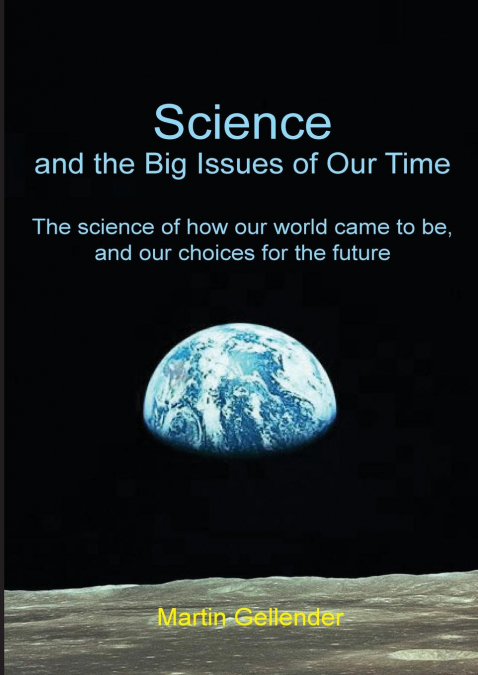
 Librería Perelló (Valencia)
Librería Perelló (Valencia)
 Librería Aciertas (Toledo)
Librería Aciertas (Toledo)
 Librería Elías (Asturias)
Librería Elías (Asturias)
 Donde los libros
Donde los libros
 El AlmaZen del Alquimista (Sevilla)
El AlmaZen del Alquimista (Sevilla)
 Librería Kolima (Madrid)
Librería Kolima (Madrid)
 Librería Proteo (Málaga)
Librería Proteo (Málaga)
Within the last few generations, our world has been shaped by technological change enabled by scientific advances. This is particularly evident to the 'baby boomer' generation, who have lived through and witnessed huge changes in society over the course of their lifetimes. Although many have little education in science, or have forgotten what they learned in high school, they understand that science has exerted a fundamental impact on society during their lives, and will continue to exert a huge effect throughout the lives of their children and grandchildren. This book applies basic scientific concepts to explain key developments that have steered the course of human society, and continue to do so. It represents a distilled essence of what the author learned or figured out during graduate study in physical chemistry; a career as a laboratory chemist, scientific writer, a government technical adviser specialising in energy projects, and Manager of an Energy Information Centre; and setting up and operating a government programme to fund development of energy and water-saving technology. This experience provided both a broad understanding of scientific principles and practical experience applying scientific approaches to address major issues facing humanity. It was an ideal background for the author to teach a course 'Science and the Big Issues of Our Time' at the University of the Third Age (U3A) in Brisbane, Australia. This book conveys the content of that course. Students in the course represent a diverse group of seniors. Most have little science education but, as a group, they bring to class about 2,000 years of life experience and wisdom. They have lived through an extraordinary period in human history, and witnessed some of the most exciting and challenging events that brought society to where it is today (for better or worse). Many have limited knowledge of mathematics, but they expect thorough and rigorous explanations that they can understand. They have no incentive or interest in getting an educational qualification or certificate, and U3A doesn't provide any. They enrol and come to class to satisfy their interest. They, and hopefully many others, are seeking to understand how our world came to be, and what are the choices for the future. This book aims to meet that need, and should be of interest to readers of all generations.